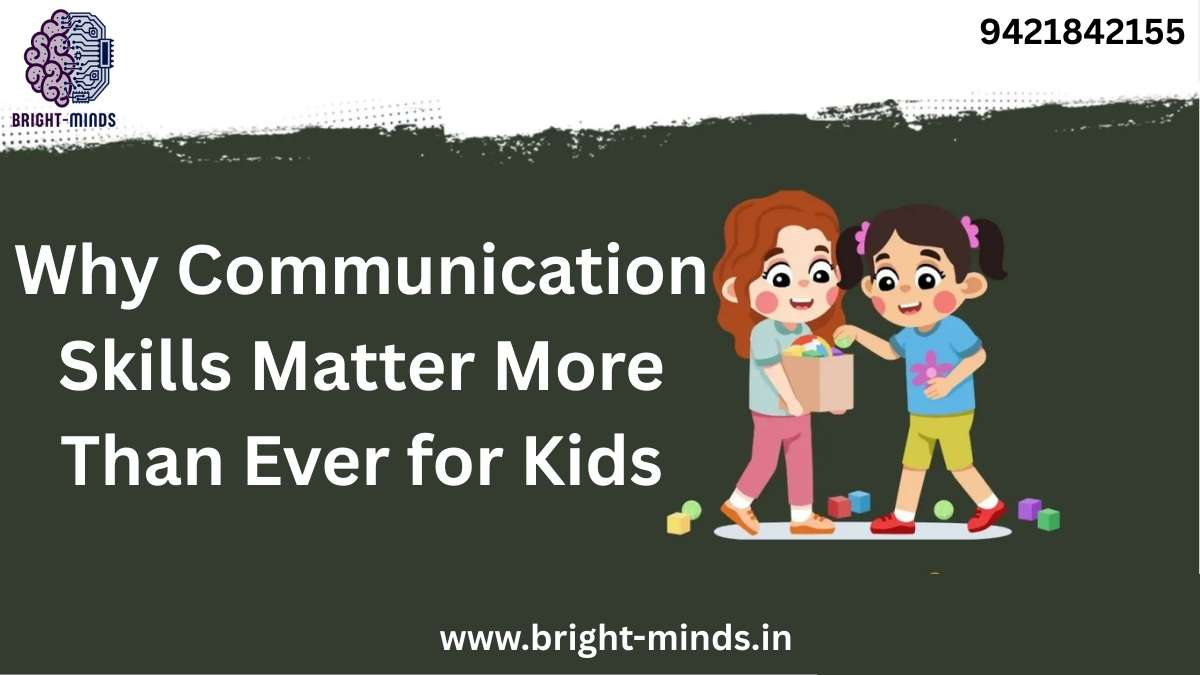In today’s fast-moving, tech-driven world, one skill is emerging as more essential than ever—communication. Whether it’s collaborating on a school project, navigating friendships, or preparing for a successful career, strong communication skills are the foundation of a child’s future.
Yet, in a world dominated by screens and social media, kids often miss out on developing the essential tools to express themselves clearly, listen actively, and resolve conflicts peacefully. And this doesn’t just affect them socially—it impacts their emotional well-being, academic performance, and long-term success.
Let’s explore why communication skills are more critical than ever, how trends are shaping the way kids learn, and what parents, educators, and employers can do to empower the next generation.
The Changing Landscape: Why Communication Is a Must-Have Skill
The workplace of the future is already here. Soft skills like teamwork, empathy, and clear communication are now valued as highly as technical skills. In fact, LinkedIn’s 2025 Future of Skills report ranks communication among the top 5 in-demand skills globally.
But here’s the twist: these aren’t skills you learn overnight.
Children who build strong communication habits early in life are better equipped to navigate:
- Public speaking in class
- Team-based assignments
- Leadership roles in clubs or sports
- Conflict resolution with peers
- Emotional regulation and self-expression
In short, teaching communication early gives kids a long-term edge—not just academically, but in every aspect of life.
What Do We Mean by “Communication Skills”?
When we talk about communication, we don’t just mean speaking clearly. It includes:
- Active listening: Truly hearing what others are saying
- Non-verbal cues: Understanding body language and tone
- Empathy: Responding thoughtfully to others’ emotions
- Assertiveness: Expressing needs respectfully
- Digital communication: Writing emails, messages, or presentations effectively
These are life skills, not just classroom skills.
Real-World Impact: Where Communication Skills Matter
Let’s bring this down to earth. Imagine two kids—both equally smart. One struggles to explain their ideas, often misunderstood. The other expresses themselves confidently, listens to others, and leads their team in a school project. Who’s more likely to be seen as a leader? Get the scholarship? Thrive in future workplaces?
Employers today prioritize communication skills when hiring—even for roles in STEM fields. One recent study by the National Association of Colleges and Employers found that 73% of employers want candidates with strong verbal communication abilities.
These skills matter in daily life too:
- Resolving playground conflicts without adult intervention
- Advocating for themselves in a classroom or medical setting
- Building meaningful relationships
Market Trends: Why Companies & Educators Are Investing in Communication
The education sector is seeing a boom in communication-focused programs, particularly those tied to:
- Emotional intelligence (EQ)
- Social-emotional learning (SEL)
- Public speaking and debate clubs
- Drama and storytelling workshops
- Conflict resolution curriculum
EdTech platforms, too, are rolling out AI-powered tools and courses that help kids practice communication in simulated real-life scenarios.
Companies are catching on. Many forward-thinking organizations now offer internal learning resources not just for employees, but their children. It’s part of a growing trend in family-centric employee wellness and future-ready upskilling.
Practical Tips: How to Start Building Communication Skills Early
You don’t need fancy programs to help your child grow as a communicator. Here are simple, effective ways to get started:
1. Model Great Communication at Home
Children mimic what they see. Be open, present, and respectful in your conversations. Let them see you handle disagreements with calm and clarity.
2. Create Daily Speaking Opportunities
Ask open-ended questions like “What was the best part of your day?” or “How would you solve that problem?”
3. Limit Screen Time
Too much texting and social media can replace authentic conversations. Schedule tech-free family time daily.
4. Encourage Group Activities
Clubs, sports, theater, and team projects are great spaces for organic communication growth.
5. Use Tools and Resources
From storytelling apps to online speaking games, plenty of resources can help kids develop these skills in fun ways.
A Word to Employers: Why This Matters for Your Workforce
If you’re an employer or HR leader, supporting communication development in employees’ families is more than a “perk”—it’s a strategic investment in future talent pipelines.
By promoting financial literacy, communication programs, and soft skills training for employees’ children, you’re:
- Enhancing employee satisfaction
- Reducing stress for working parents
- Preparing future generations to thrive in your industry
Consider partnering with education platforms that offer workshops or self-paced courses for young learners and families. It’s a win-win for company culture and community impact.
The Takeaway: Start Today, Lead Tomorrow
Whether you’re a parent, teacher, or HR professional, building communication skills for kids is one of the most impactful steps you can take for their long-term success.
These aren’t just “nice-to-have” skills—they’re need-to-have.
It’s never too early, or too late, to start. Begin with small, consistent actions today, and you’ll be setting up the children in your life for a brighter, more confident, and connected future.
You may also like this:-

